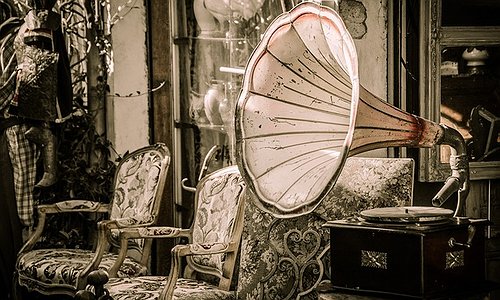Winter Survival Tips for Homeowners
As winter night time temperatures finally plummet into the sub-zero range, many home owners are finding out just how unpleasant and disruptive a burst geyser or water pipe can be. There’s nothing quite like the sound of gushing water coming through your ceilings at 03:00 to test your sense of humour. Besides the geyser risks, heaters and fireplaces also present significant safety risks that need to be considered.
The good news is that with some simple preparations and planning to ‘winterise’ your home, cold temperatures don’t have to sub-zero your mood or your budget. With properly scoped building and contents insurance in place, you’ll be able to limit the financial repercussions of an unforeseen home mishap and get back to normality quickly and with your budget intact.
“Water- and fire-related mishaps usually bring a considerable amount of resultant damage along with them. It’s also when you’re most likely to find out just how adequate your insurance coverage is in sorting out the problem quickly and without hassle. Not all insurance policies are created equal and homeowners need to make sure that they are properly covered,” says Mandy Barrett of insurance brokerage, Aon South Africa.
It’s important to remember that there is a difference between buildings and household contents cover. It could well mean that damage to your geyser, pipes, ceilings and so on (building) and damage to furniture or appliances (content) would be lodged as two separate insurance claims, which means that you may need to foot the bill for two excesses. Getting to grips with the terms of your cover is a role best undertaken with a broker who can do a proper assessment of all the technicalities and fine print and advise you accordingly,” explains Mandy.
From an insurance perspective, it’s also important to perform regular maintenance around the home – policy holders are expected to take reasonable measures to prevent loss so a clear lack of maintenance could be a problem if there was an insurance claim.
Aon offers the following tips to survive the winter cold and manage the unexpected:
Geyser
In the event of your geyser or water pipes bursting, turn off the water mains and switch the geyser off on the main circuit board. To relieve the pressure in the geyser and pipes, open all the warm water taps to empty the geyser faster. Move as much of your furniture and belongings out of the way to minimise the water damage. Contact your broker and make arrangements for an accredited plumber to assist you.
Insulation is always a good idea for your geyser and water pipes. Use a geyser blanket to insulate your geyser and lagging on the exposed water pipes in your roof – not only does this protect against a sharp drop in temperature which can cause a burst pipe or geyser, but it will also save you money in the long run as water will stay hotter for longer.
Another aspect to consider when replacing a geyser is an upgrade to a green, sustainable energy solution, especially with the recent increases in electricity costs. Speak to your broker about insurers who are offering clients the opportunity to replace their damaged geysers with solar or heat pump options, allowing you to pay in the difference between the insurance pay out and the cost of the green water heating system. Remember to update your insurance policy and let them know if any new assets or upgrades that you add to your property.
Water collection tanks
If you have installed a large water tank to collect rain water or borehole water, make sure that the water pump has ‘run-dry’ protection on it which means that it will automatically shut off if it detects that there is no water to pump – this could happen if the water freezes or if the borehole runs dry.
Think carefully about where you position the tank – tanks hold on average anywhere between 2500 to 5000 litres of water which can do considerable damage if the tank bursts due to damage or malfunction.
Gas Stove, heaters and fireplaces
Exercise extra precaution when using these appliances in your home – gas and open flames represent a significant fire and health risk. If your gas heater is working as it should, you should not be able to smell any gas. Always use your gas appliances as specified by the manufacturer with the correct safety valves and mechanisms in place. If you suspect a gas leak, immediately turn off the source and open all windows and clear the room. If your gas heater or stove is using more gas than usual it could be a sign of a leakage. Get a certified gas installer to do regular safety checks and service your equipment.
There’s nothing like a fireplace to cosy up the cold winter nights. Always make sure that flammable objects are kept well away from a fireplace and always use a screen to prevent any sparks from flying off and setting fire to carpets or curtains. Never use charcoal as a fire-starter inside your fireplace as it could lead to carbon monoxide poisoning. Make sure the chimney and air vents are clear of any debris such as bird’s nests and leaves to ensure ventilation is not impaired in any way.
Generators
The only safe way to use a generator is to have it professionally installed by a qualified electrician with a transfer switch to ensure that you can safely switch between electricity from the grid and from the generator when required.
Never overload the generator with more appliances than it can handle as you can cause serious damage to sensitive appliances. Always use the specified heavy duty power cable extensions as overloaded cords can cause fires or equipment damage.
Never use a generator indoors or in an enclosed garage – just like your car, a generator emits deadly toxic gases.
Only purchase approved generators that have been certified by the necessary local control boards.
The services of a professional insurance broker are invaluable in evaluating your exposure to the challenges that the encroaching winter months bring. If you are unlucky and suffer a home mishap, Aon offers a 24-hour incident line so you can call for immediate assistance, 24/7. It’s a good idea to add your broker’s claims call centre number to your list of contacts so that it’s easily accessible when you need it.
“A professional broker will be able to facilitate the making of a well-managed insurance programme that accounts for your unique needs and risk profile, while matching your available budget. Your broker will also be able to confirm exactly what you are covered for and whether any exclusions or special conditions exist on your policy. A broker can ensure that you are in good hands and that there are no surprises waiting for you when you claim,” concludes Mandy.
Written by: Thuli Sikhosana / Teresa Settas Communications
Image URL



